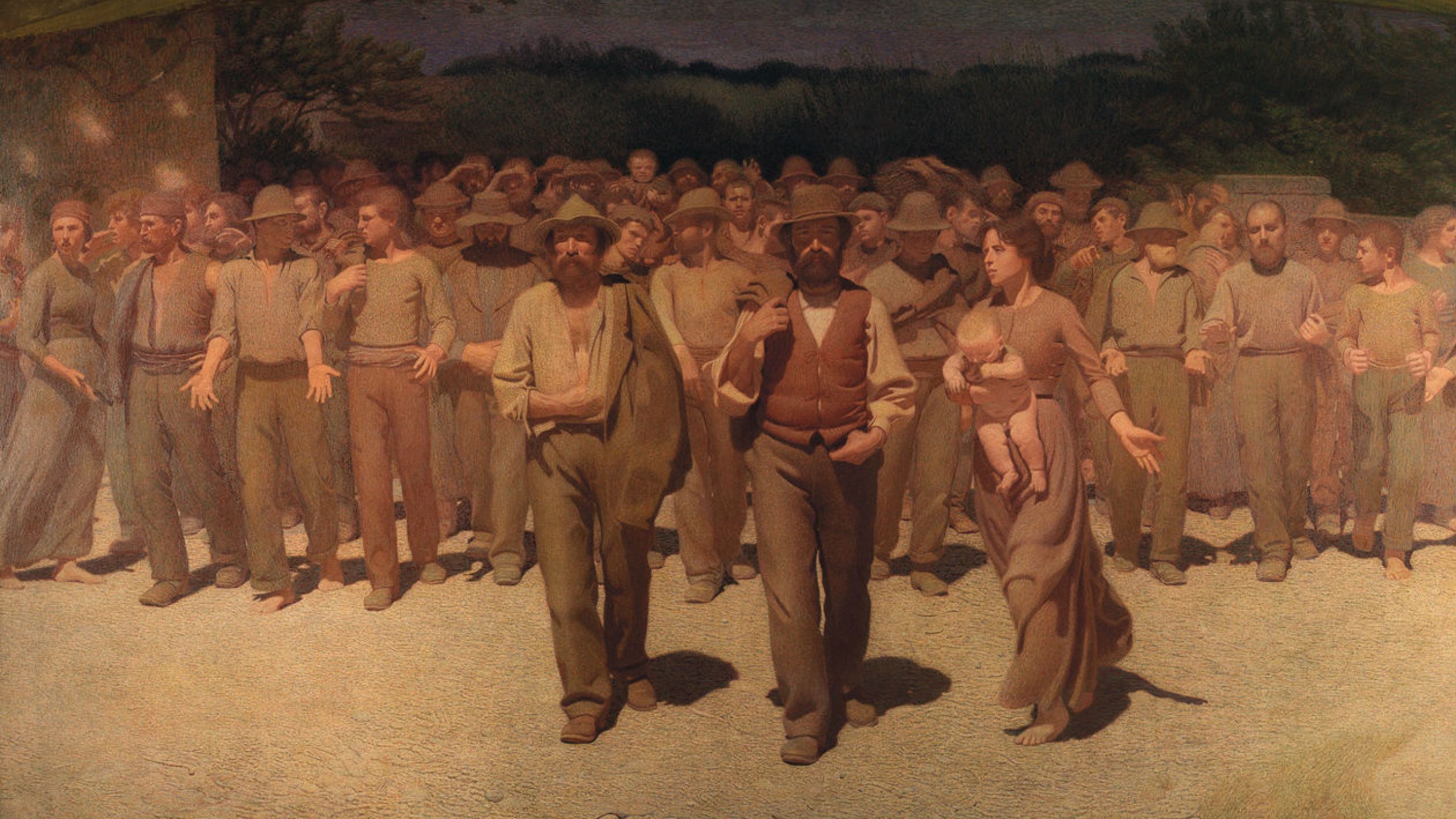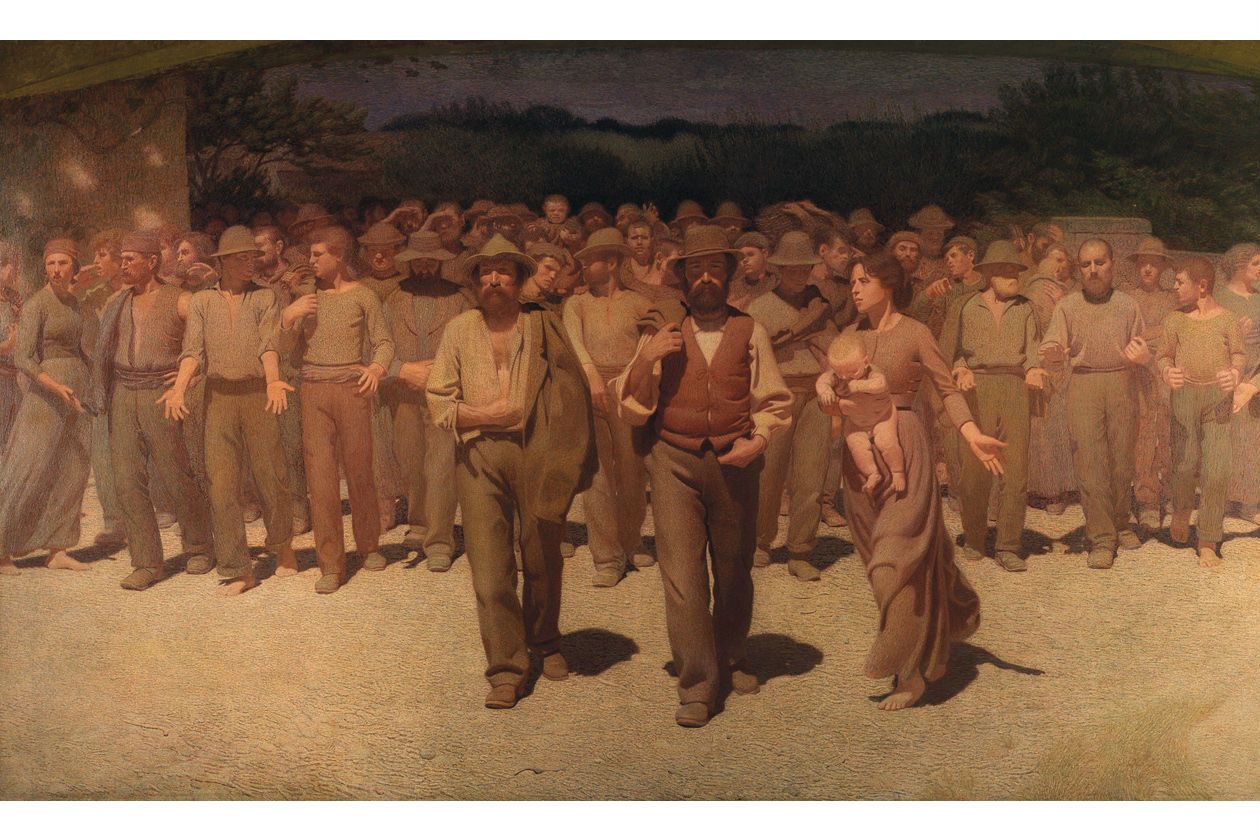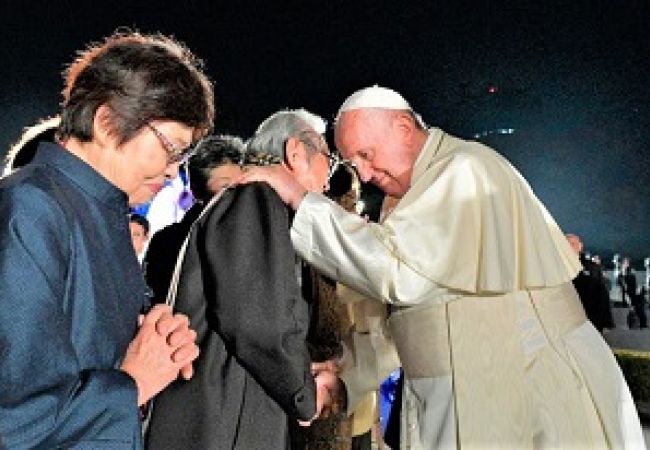Giustizia sociale e dignità umana
Nel 1989 quando cadeva il muro di Berlino molti pensarono in Europa che i diritti umani e la giustizia sociale potessero assumere finalmente un valore più ampio.
Nel 1993, quattro anni dopo la fine della guerra fredda, a Vienna fu organizzata dalle Nazioni Unite una conferenza internazionale. La più grande mai organizzata sui diritti umani.
Ne uscì la “Dichiarazione di Vienna” che annunciava un’età dell’oro dei diritti umani.
Purtroppo nei fatti cominciava invece una lenta e costante erosione: il genocidio del Ruanda, le guerre nei Balcani, l’11 settembre 2001, il terrorismo e la “guerra al terrorismo”, e oltre l’Europa, l’incapacità di chiudere la prigione di Guantanamo, il primato di esecuzioni extragiudiziali, l’attacco con i droni indirizzato a Paesi con i quali non si era ufficialmente in guerra.
Poi è arrivata anche la guerra in Siria, insieme all’impotenza collettiva di fronte a sei anni di orrori, il diffondersi del terrorismo jihadista e i suoi massacri indiscriminati, l’intensificarsi delle misure di sicurezza, il rifiuto di accogliere i profughi, la crescita del populismo, quella cosa che non è l’espressione del popolo, ma la manipolazione dei suoi sentimenti.
Il rapporto Working for The Few diffuso alla vigilia dell’ultimo World Economic Forum di Davos (2017) dimostra, con dati alla mano, che stiamo andando verso un mondo dominato da un numero sempre più esiguo di persone. 85 Paperoni possiedono l’equivalente di quanto detenuto da metà della popolazione mondiale.
Si comincia a pensare che l’uomo ricco, il più potente, possa essere anche la guida migliore, meglio se pronto all’ironia goliardicamente machista.
In maniera inversamente proporzionale ad un’equa distribuzione della ricchezza aumenta il populismo, che più facilmente attecchisce nella frustrazione dei bisogni di molti.
Non occorre stupirsi se in nome dei posti di lavoro, per evitare i cambiamenti culturali o per proteggersi dal terrorismo, molti politici cavalcano l’onda.
Una malcelata paura di usare i diritti umani come criterio di scelta e di azione si manifesta in modo palese. È facile cavalcare il populismo sfruttando i temi da sempre più adeguati per operazioni simili: razzismo, xenofobia, misoginia. Più difficile è cercare soluzioni.
A farne le spese è l’essenza stessa dei diritti umani e della giustizia sociale.
Come mai i diritti umani di cui tutti parlano rimangono ancora in gran parte disattesi e la giustizia sociale appare ancora una chimera? Stiamo retrocedendo verso l’arbitrarietà e l’oscurantismo?
Nel momento in cui i leaders di successo dell’est e dell’ovest e quelli nostrani imperversano, tocca alla società civile mantenere i nervi saldi e riaffermare certi valori che non devono essere sacrificati.
Occorre ricordare e riaffermare la volontà di non fare gli altri quello che non vorremmo mai che gli altri facessero a noi.
Per esempio, è assai inquietante sapere che in Russia in questi giorni sia stata firmata una legge che declassa i maltrattamenti in famiglia a “illecito amministrativo”. E così anche le violenze tra le mura domestiche, da derubricate, saranno pure digerite come affari interni di famiglia.
Magari qualcuno potrà anche pensare che “se ti picchia, vuol dire che ti ama!”
Il passo è veramente breve per giustificare la violenza come norma e modello di vita.
Qualcuno dice che questo tipo di panni sporchi da lavare in casa, affonderebbe le proprie radici nel Domostroi, un insieme di regole familiari tradizionali in vigore all’epoca di Ivan il Terribile.
Già, ma se lo stato non deve interessarsi degli affari interni di famiglia, allargando il discorso, perché mai dovrebbe interessarsi degli affari interni degli altri stati?
Se la leadership di uno stato è in mano a uomini ricchi, forti e potenti, che aspetto avrà in futuro la cittadinanza universale?
Vigilare e prestare attenzione costantemente è necessario, prima che “uomini forti” di tutto il mondo mutino e si moltiplichino in tanti piccoli Ivan…
Il problema della giustizia sociale è certamente e strettamente legato a quello della distribuzione della ricchezza e dell’etica dell’uguaglianza universale.
E non sarà mai fuori luogo ricordare e riaffermare la volontà di trattare gli altri come vorremmo che questi ci trattassero.
E.V.
Social justice and human dignity
(20 February, World Day of Social Justice)
When the Berlin wall fell in 1989, it was widely thought in Europe that a new era was beginning for human rights and social justice.
In 1993, four years after the end of the Cold War, the United Nations organized in Vienna the greatest ever international conference on human rights, which resulted in the “Vienna Declaration”, heralding a golden age for human rights.
Unfortunately, in actual fact, a slow and constant erosion of human rights was just beginning:
genocide in Rwanda, wars in the Balkans, the attack on the Twin Towers on 11 September 2001, terrorism and the “war on terrorism” and, beyond Europe, the inability to close the Guantanamo Bay detention camp, a record number of extrajudicial executions, attacks with drones in countries that are not officially at war.
To all this we must add the war in Syria and the collective impotence in the face of six years of horror, the spread of Jihadi terrorism and its indiscriminate massacres, the intensification of security measures, the refusal to welcome refugees and the growth of populism, which is not an expression of what people believe, but a manipulation of their feelings.
The report Working for The Few that was published before the last World Economic Forum in Davos (2017) shows that the world is progressively becoming the domain of a small number of people: 85 rich people have accumulated as much wealth between them as half of the world’s population.
People are beginning to believe that the rich and powerful can also be the best guide, especially if they display an exuberant and chauvinistic sense of irony.
Populism increases in a way that is inversely proportional to the fair distribution of resources and takes root more easily when the needs of many are frustrated.
We should not be surprised if many politicians ride the wave of public approval in the name of employment opportunities, avoidance of cultural change, or protection against terrorism.
An ill-concealed fear of using human rights as a criterion of choice and action is clearly visible. It is easy to ride the wave of populism and exploit topics such as racism, xenophobia and misogyny. It is more difficult to seek real solutions.
In such an atmosphere, human rights and social justice pay a heavy price.
Why is it that human rights, which are on everyone’s lips, are still for the most part disregarded while social justice seems nothing more than a fantasy? Are we regressing to arbitrariness and obscurantism?
At a time when the most successful leaders in the East and the West, along with our own leaders, are ranting and raving, it is the task of civil society to remain calm and reassert certain values that must not be sacrificed.
We must remember and reassert the principle that we do not do to others what we do not wish them to do to us.
For example, it is quite disturbing to hear that Russia has approved a law which declasses domestic violence to a “minor offense”. Consequently, domestic violence will be looked upon as a family matter.
Perhaps people will begin to believe that “violence is a sign of love!”
From there it’s just a short step to justifying violence as a norm and life model.
Some say that the roots of this “keeping things within the family” go back to the Domostroi, a set of traditional family rules that were in force during the times of Ivan the Terrible.
That may well be true, but if the government must keep out of the internal affairs of the family, why should it ever take an interest in the internal affairs of other countries?
If the leadership of one country is in the hands of rich, strong and powerful people, what will be the future of universal citizenship?
We must be constantly on our guard in order to ensure that the “powerful people” of the entire world do not multiply and become “miniature Ivans the Terrible” …
The problem of social justice is undoubtedly closely connected to the distribution of resources and the ethics of universal equality.
And it will never be out of order to remember and reassert the principle that we must treat others as we would like them to treat us.
E.V.
Link &
Download
Accedi qui con il tuo nome utente e password per visualizzare e scaricare i file riservati.





